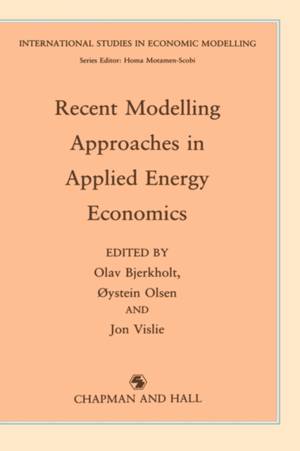
Je cadeautjes zeker op tijd in huis hebben voor de feestdagen? Kom langs in onze winkels en vind het perfecte geschenk!
- Afhalen na 1 uur in een winkel met voorraad
- Gratis thuislevering in België vanaf € 30
- Ruim aanbod met 7 miljoen producten
Je cadeautjes zeker op tijd in huis hebben voor de feestdagen? Kom langs in onze winkels en vind het perfecte geschenk!
- Afhalen na 1 uur in een winkel met voorraad
- Gratis thuislevering in België vanaf € 30
- Ruim aanbod met 7 miljoen producten
Zoeken
€ 335,95
+ 671 punten
Omschrijving
construction. Naturally, we are open to suggestions from all readers of, and contributors to, the series regarding its approach and content. Finally, I would like to thank all those who have helped the launch of this series. The encouraging response received from authors who have contributed the forthcoming volumes and from the subscribers to the series has indicated the need for such a publication. Homa Motamen-Scobi London December 1987 Preface In 1990 both OPEC and the OECD will celebrate their thirtieth anntvers- aries. OPEC was founded - rather unnoticed - by oil-producing countries still struggling to gain control over national petroleum resources. Future members were still under colonial rule. The foremost aim of the new organization - years before it was able to make metropolitan newspaper headlines - was stabilizing oil prices. Stability in those days meant prevent- ing oil prices from falling in real terms. The OECD was formed by mostly mature industrial economies marking the normalization of the postwar international economy after years of reconstruction, strict trade regulations, etc. The aim of the new organization was to promote 'the highest sustainable growth and employment' in member countries. Incidentally, 1960 was also the year which gave birth to a more loosely defined block in the world community, namely the underdeveloped countries, qS the African colonial empires finally broke up. The two organizations became adversaries in the 1970s in the power struggle over the energy flows of the world.
Specificaties
Betrokkenen
- Auteur(s):
- Uitgeverij:
Inhoud
- Aantal bladzijden:
- 268
- Taal:
- Engels
- Reeks:
Eigenschappen
- Productcode (EAN):
- 9780412353406
- Verschijningsdatum:
- 31/10/1990
- Uitvoering:
- Hardcover
- Formaat:
- Genaaid
- Afmetingen:
- 156 mm x 234 mm
- Gewicht:
- 585 g

Alleen bij Standaard Boekhandel
+ 671 punten op je klantenkaart van Standaard Boekhandel
Beoordelingen
We publiceren alleen reviews die voldoen aan de voorwaarden voor reviews. Bekijk onze voorwaarden voor reviews.









